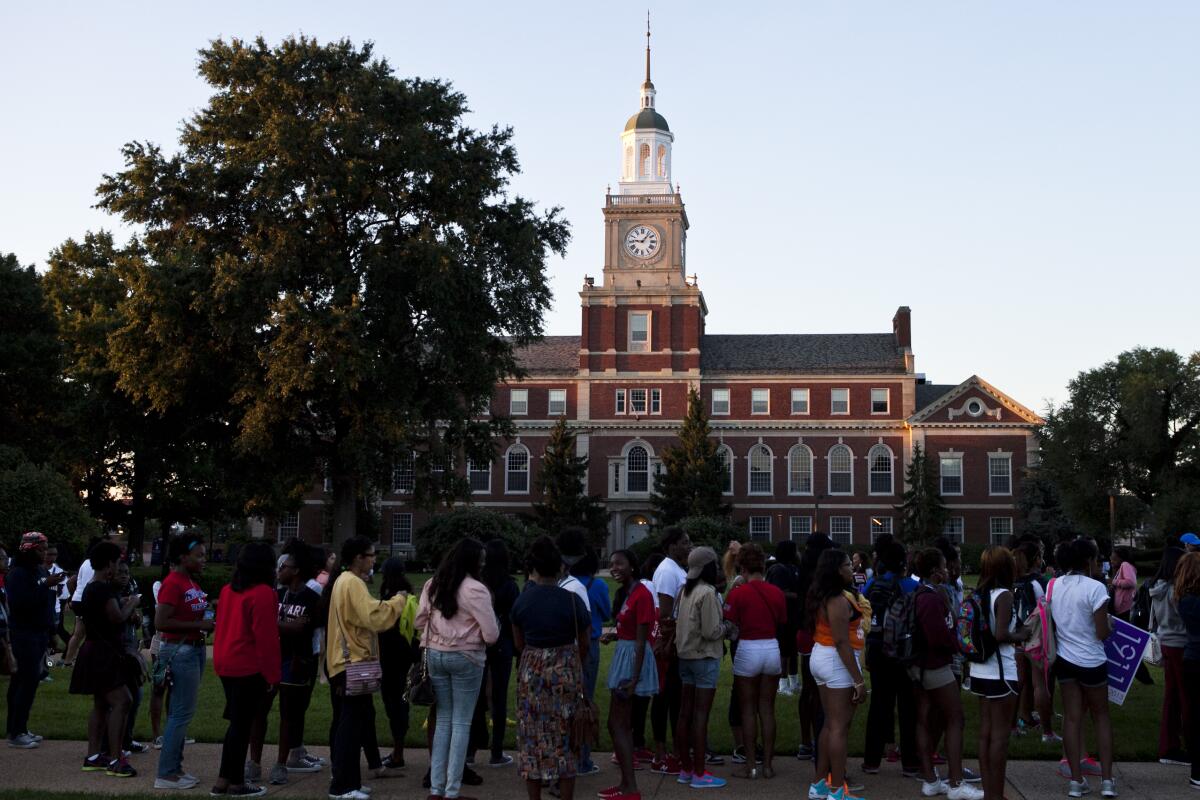
Ever wondered what makes HBCUs (Historically Black Colleges and Universities) so unique and vital to American history and culture? Well, you're in for a treat! HBCUs are not just institutions of higher learning; they're cradles of heritage, innovation, and empowerment that have shaped countless leaders, thinkers, and changemakers. From their rich history to the incredible impact they've had on society, there's so much to uncover about these esteemed institutions. Whether you're a prospective student, an alumnus, or simply a trivia enthusiast, getting to know these 25 great HBCU facts will surely impress and inspire. Ready to dive into a world brimming with achievement and pride? Let's get started!
Key Takeaways:
- HBCUs are historically Black colleges and universities that have played a vital role in educating and empowering African American students, producing influential leaders, and promoting diversity in higher education and society.
- Despite facing financial challenges, HBCUs continue to thrive as centers of innovation, community, and resilience, shaping future leaders and contributing to advancements in various fields.
What is an HBCU?
Historically Black Colleges and Universities (HBCUs) are institutions of higher education in the United States established before the Civil Rights Act of 1964 with the intention of primarily serving the African American community. These schools offer a rich tradition of culture, community, and education, making them unique in the landscape of American higher education.
The Origins of HBCUs
-
The first HBCU, Cheyney University of Pennsylvania, was founded in 1837, long before slavery was abolished in the United States. This makes Cheyney University not only a pioneer in African American education but also one of the oldest higher education institutions for Black people in the country.
-
HBCUs were established with the purpose of providing African Americans with access to education and professional training during a time when such opportunities were severely limited due to racial segregation laws.
HBCUs Today
-
There are currently 101 HBCUs in the United States, including public and private institutions, medical schools, and community colleges.
-
Despite making up only about 3% of the country's colleges and universities, HBCUs have produced 80% of Black judges, 50% of Black doctors, and 50% of Black lawyers in the nation.
-
HBCUs are also responsible for 25% of Black STEM graduates, highlighting their critical role in diversifying fields that have historically lacked minority representation.
Notable Alumni
- Many influential African Americans are HBCU graduates, including Vice President Kamala Harris (Howard University), civil rights leader Martin Luther King Jr. (Morehouse College), and media mogul Oprah Winfrey (Tennessee State University).
HBCU Culture and Community
-
HBCUs are celebrated for their vibrant campus life, which includes unique traditions, homecoming events, and marching bands that often gain national attention.
-
Greek life at HBCUs is a significant aspect of student life, with many fraternities and sororities that are part of the National Pan-Hellenic Council (also known as the "Divine Nine") playing a key role in community service and leadership development.
Financial Aspects
-
HBCUs often provide more affordable education compared to other institutions, making higher education accessible to a larger number of African American students.
-
Despite their lower tuition rates, HBCUs face financial challenges, including lower endowments and funding disparities, which can impact their ability to expand and update facilities.
Government Support
-
The federal government recognizes the importance of HBCUs and has allocated increased funding and resources in recent years to support their mission.
-
Programs and initiatives aimed at strengthening HBCUs have been introduced, including grants for infrastructure improvements and scholarships for students.
HBCUs and Innovation
-
HBCUs are hubs of innovation and research, contributing significantly to scientific studies, especially in areas affecting the African American community.
-
These institutions often partner with businesses and other universities to drive advancements in technology, healthcare, and social sciences.
The Future of HBCUs
-
As the United States becomes more diverse, the role of HBCUs in promoting higher education and leadership among African Americans continues to be of paramount importance.
-
With increasing recognition of their contributions to society and the economy, HBCUs are poised for growth and continued influence in shaping future generations of leaders.
-
Challenges remain, including addressing funding disparities and enhancing academic programs, but the resilience and community support for HBCUs signal a bright future ahead.
-
The ongoing commitment to social justice and equality by HBCUs underscores their vital role in not only educating students but also in fostering a more inclusive society.
-
As technology and education evolve, HBCUs are adapting by offering online degrees and programs to reach a broader audience and meet the needs of modern students.
-
The legacy of HBCUs as centers of excellence, cultural pride, and community engagement is a testament to their enduring impact on American society and the world.
-
With alumni continuing to excel in various fields, the influence of HBCUs extends far beyond their campuses, enriching communities and industries across the globe.
-
The unique blend of academic rigor, cultural heritage, and commitment to service found at HBCUs creates a transformative experience for students, preparing them for leadership roles in a diverse world.
-
The spirit of innovation and resilience that characterizes HBCUs is a model for institutions of higher learning everywhere, demonstrating the power of education to overcome adversity and promote social change.
-
As advocates for social justice, HBCUs play a crucial role in advancing discussions and actions that address racial inequalities and promote diversity and inclusion in all sectors of society.
-
The story of HBCUs is one of triumph over adversity, a celebration of culture and community, and a beacon of hope for future generations seeking to make a positive impact in the world.
A Final Look at HBCU Excellence
HBCUs have stood as pillars of education, culture, and empowerment for African American communities. From producing a significant portion of Black professionals to being at the forefront of civil rights movements, these institutions embody resilience and excellence. Their impact stretches beyond academics, fostering environments where students thrive through support, heritage, and a strong sense of community. As we've seen, HBCUs are not just educational institutions; they're incubators for leaders, innovators, and change-makers. Recognizing their value and contributions is essential, not only for the African American community but for the entire nation. Supporting and celebrating HBCUs ensures that they continue to uplift future generations, maintaining their critical role in shaping a more inclusive and equitable society. Let's honor their legacy by acknowledging their achievements and the vital role they play in our educational system.
Frequently Asked Questions
Was this page helpful?
Our commitment to delivering trustworthy and engaging content is at the heart of what we do. Each fact on our site is contributed by real users like you, bringing a wealth of diverse insights and information. To ensure the highest standards of accuracy and reliability, our dedicated editors meticulously review each submission. This process guarantees that the facts we share are not only fascinating but also credible. Trust in our commitment to quality and authenticity as you explore and learn with us.


